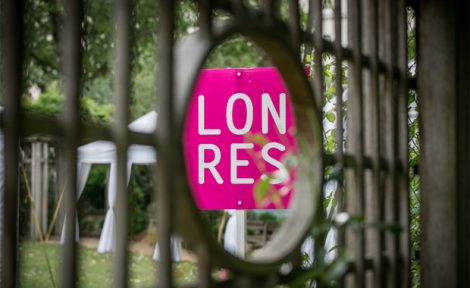Checking rental properties
An Englishman’s home is his castle… so, says Frances Burkinshaw, are property visits necessary or just an intrusion into tenants’ lives?
 Firstly, discuss the difference between ‘Visits’ or ‘Inspections’. One should always be careful not to talk about inspections; if an agent promised a client that they would carry out periodic inspections they could be open to problems.
Firstly, discuss the difference between ‘Visits’ or ‘Inspections’. One should always be careful not to talk about inspections; if an agent promised a client that they would carry out periodic inspections they could be open to problems.
The Oxford Dictionary defines the word as “careful examination or scrutiny” so we would expect the property to be ‘examined’ and ‘scrutinised’ rather than simply visited, which is what most agents do.
If we ‘examined’ the property we’d check wardrobes for damp, move beds and sofas – actions that would be carried out by a surveyor carrying out a full survey of a property – not by an agent checking on a rental property.
Agents usually contract to visit a property every four to six months. Many, however, never go near the property, they don’t consider it important.

We should consider whether such visits are necessary/worthwhile or are they an intrusion into tenants’ lives? Many landlords are embarrassed to ‘snoop’ so they might simply call at the property and talk on the doorstep without actually checking it. The agent, however, isn’t emotional about it and is carrying out a contractual duty; so it can be easier for an agent.
Agents usually contract to visit the property every four to six months. Many, however, never go near the property especially if they think it’s being well looked after. They don’t consider it valuable. I strongly disagree… a property visit is one of the most important duties carried out by an agent.
WHY VISITS ARE IMPORTANT
Firstly, many tenants look after property better than some landlords!
In our own home we would not leave problems unattended BUT tenants are not responsible for general structural maintenance of a property and might not ‘care’ about a dripping WC overflow. Smaller issues, if left, could lead to serious maintenance problems.
We have all heard of ‘cannabis factories’ in rented accommodation. If a property was visited this is less likely to arise.
Section 11 of the Landlord and Tenant Act 1985 makes the landlord responsible for structural repairs to the property. This act also gives the landlord the right of access to carry out such repairs. Invariably the tenancy agreement will have an access clause; the tenant agrees to this in the contract.
This does not mean that a landlord or agent can simply turn up, use their key and enter. Absolutely not! An appointment must be made giving at least 24 hours’ notice. Hopefully the agent and tenant have a good relationship so that a convenient appointment is made. Tenants may be happy for the agent to use their own key but permission must be sought.
If a tenant will not allow access or flatly refuses, the only recourse is through the courts. A Section 8 notice should be served citing Ground 12 (breach of contract). Service of this notice may be enough to show the tenant that you ‘mean business’. If not, the landlord must agree to bring an action against the tenant to gain access.
I only ever once had to obtain an order for a property visit. The tenants were very secretive, never allowed access; they were also in rent arrears. The landlord agreed to our obtaining a court order. Armed with that order and accompanied by my builder we entered the property. The tenants were there; the flat was filthy. Within two weeks of our visit the tenants left the flat! I believe that we had ‘pricked their balloon’ and won.
An agent should be very suspicious if a tenant will never allow a visit. Why? What do they have to hide?
WHAT TO LOOK FOR
A property visit is not a housekeeping check; an agent should not be looking for untidiness. They might be surprised if, having made an appointment, the property is chaotic. The agent should look through mess to the actual property and the landlord’s contents such as carpets, white goods etc.
Are pets permitted? Is there evidence of a pet? How many tenants live there? How many used beds, toothbrushes etc. are there? Is there evidence of illegal activity?
Has the tenant had any issues which might require attention or repair?
Another advantage of a visit is that by chatting to the tenant you get an idea of their plans. This information can be passed back to the office and could be very helpful.
Property visits are an essential part of property management and should never be dismissed as unimportant.
Frances Burkinshaw is an independent trainer available nationally for in-house or group training. 01892 783961 or 07887 714341 or [email protected]










